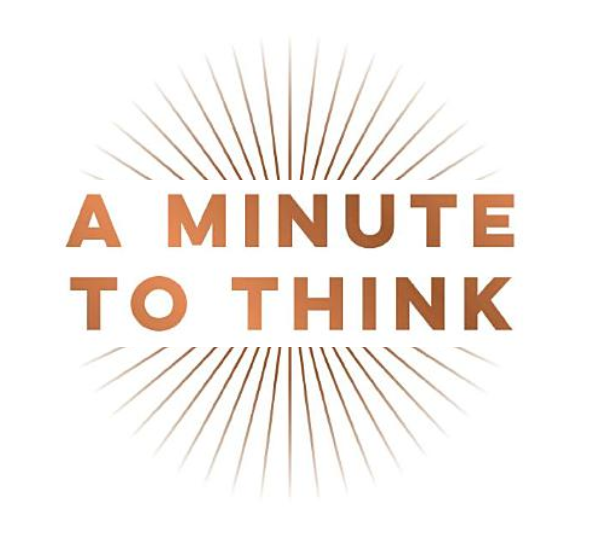A Minute to Think

We need space to think. Space and managing our day are the core concepts of A Minute to Think: Reclaim Creativity, Conquer Busyness, and Do Your Best Work.
Being busy is different than being productive. There’s a state called “performative busyness,” where we feel better when more active.
Part of the need to be busy is self-imposed pressure based on others. In the book, they share an example from the show Candid Camera. In it, a bunch of actors in an elevator face the wrong way. When an unsuspecting person goes into the elevator, they too face the wrong way. In a work setting, we can mirror this behavior. If we are in a team where everyone is always on and responding to emails or texts at all hours of the day, we can feel pressure to match this same behavior.
Gallup stated 25% of us feel burnt out. Deloitte said over 2/3 of us have an “overwhelming” amount of work. Yet, being more focused and less “on” delivers results. Microsoft in Japan did a study where employees worked a four-day workweek instead of a five-day workweek. Productivity went up by 40%.
To perform complex tasks, we use our frontal lobe. Without breaks, there is a dramatic drop in productivity. With breaks, our brains are more effective and creative.
There are four breaks: social, nutritional, relaxation, and cognition based on a Harvard Business School study. A social break is taking time to talk to someone. A nutritional break is eating or drinking. A relaxation break could be taking a walk. A cognition break is reading something non-work-related.
Our core drives at work are to get information and achieve excellence. The mistake we make is to shoot for perfection. If you wonder if you’re a perfectionist, ask if others have said you’re too focused on details or give too much effort to things that aren’t important.
To curb perfectionism, choose projects, problems, and people who deserve focused attention and effort. Also, avoid distractions like notifications for email or social media, or other platforms.
Along with avoiding distractions, control your devices instead of letting your devices control you. Studies show smartphones can make us less productive, and a recent research study stated just having our phone on the table while talking to someone makes that person like us less.
Constantly checking social media or email makes us less productive and not focused on more complex tasks. We do it because we get a dopamine rush. So how do we get around this? Develop habits like having set times to check email or social media.
For communication, effective communicators think about the medium. The book talks about 2D and 3D communication. 2D is a text or email to get a quick answer. 3D is a live conversation when we need a more complex conversation or outcome.
In summary, busyness is not a badge of honor. Schedule the day instead of letting the daily schedule you by having focused thinking time, taking breaks, and controlling when you check email or social media.